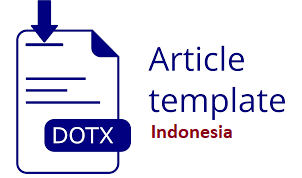Strengthening the Role of Lake Toba Geopark as a Sustainable Tourism Destination Based on Conservation, Education, and Community Empowerment
Kata Kunci:
Geopark, Conservation, Education, Empowerment, Sustainable TourismAbstrak
This study explores the strategic role of the Lake Toba Geopark in advancing sustainable tourism by integrating three main pillars: conservation, education, and community empowerment. Using a qualitative research design, data were collected through in-depth interviews, field observations, and document analysis involving key stakeholders including local communities, geopark managers, and policy makers. The findings reveal that while conservation efforts have been initiated, they remain fragmented and lack integrated institutional collaboration. Educational programs are mainly targeted at tourists, leaving local communities with limited access to participatory knowledge-building initiatives. Community empowerment, though emerging, is still constrained by limited capacity building and market access. The study highlights the need for a holistic management model that links conservation, education, and community development to ensure long-term sustainability. This research contributes to policy discourse and offers practical implications for improving the governance of geoparks as sustainable tourism frameworks.
Referensi
Brilha, et, A. (2019). Geoheritage and Geoconservation Strategies in Geoparks: From Inventory to Sustainable Development. Geoheritage, 11(3), 575–588.
Chaoprayoon, T. (2020). Geopark., Co-Management: The Empowerment of Community Strength for Tourism Management in Satun UNESCO Global Dusit Thani. Dusit Thani College Journal, 14(3), 78–94.
Fajar, et, al. (2023). Symbiosis., Ecotourism and Geopark: A Potential for a Sustainable. Jurnal Pendidikan Ilmu Sosial, 32(1), 1–12.
Farsani, et, A. (2020). Geoparks and sustainable local development: a systematic review. Environmental Development, 33, 1–11.
Giampietro,et, al. (2020). Geotourism and Geosites for Enhancing Geoscientific Education: A Perspective from Italy. Geoheritage, 12(2), 30–45.
Ginting & Sasmita. (2018). Developing tourism facilities based on geotourism in Silalahi Village, Geopark Toba Caldera. IOP Conference Series: Earth and Environmental Science, 126(1).
Hajar,et, al. (2024). Tourism Policy Based on Good Tourism Governance in Realizing Sustainable Tourism in the Lake Toba Tourism Area, North Sumatera. IAPA Proceedings Conference, 1433–1055.
Lie.et.all. (2023). The Model Integrated Sustainability Geopark dan Ekowisata Danau Toba menggunakan Pendekatan Berbasis Sistem Rekomendasi. Seminar Nasional Teknologi & Sains, 5(1), 45–56.
Mandal, et, A. (2020). Potential of Geotourism Development Using GIS in Purulia District, India: A Sustainable Approach. GeoJournal of Tourism and Geosites, 32(4), 1407–1415.
Martínez-Graña,et, al. (2021). Geotourism and Local Development Based on Geosites Exploitation: A Case Study from Villuercas-Ibores-Jara UNESCO Global Geopark (Spain). Sustainability. 13(11), 6123–6131.
Mulyadi et.al. (2022). Pengembangan Kawasan Danau Toba melalui Destinasi Pariwisata Geopark Kaldera di Kabupaten Tapanuli Utara. Jurnal Akademi Pariwisata Medan, 10(1), 25–36.
Qin, et, al. (2022). Community participation in geopark tourism: A framework for understanding empowerment and sustainable development. Tourism Management Perspectives, 41, 1–10.
Quiroz, et, al. (2023). Review., Experiences and Strategies of Education and Conservation within Geoparks: A Bibliometric. IJAEDU - International E-Journal of Advances in Education, 9(25), 7–14.
Rodrigues.et.al. (2021). Geoproducts – Innovative development strategies in UNESCO Geoparks: Concept, implementation methodology, and case studies from Naturtejo Global Geopark, Portugal. International Journal of Geoheritage and Parks, 9(1), 108–128.
Shekhar, et al. (2019). Conservation and Sustainable Development of Geoheritage, Geopark, and Geotourism: A Case Study of Cenozoic Successions of Western Kutch, India. Geoheritage, 11(4), 1475–1488.
Simandjorang.et.al. (2022). Environmental Conservation Based on Community Empowerment: Case Study in Toba Caldera UNESCO Global Geopark. Jurnal Bina Praja, 14, 517–527.
Skibi?ski, E. a. (2021). Geoparks in SE Poland as areas of tourism development: Current state and future prospects. Resources, 10(11), 1–29.
Su, et, A. (2020). Integrating Geoconservation and Sustainable Tourism: Evidence from Geoparks in China. Journal of Environmental Management, 26, 1–12.
Wahyudin, et, A. (2024). Effectiveness of the UNESCO Global Geoparks Regime on Local Community Development in the Rinjani-Lombok UNESCO Global Geopark Area. Proceedings of the Southeast Asian Conference on Migration and Development (SEACMD 2023), 1–12.
Wal Hidayat, N. (2019). Persepsi Publik Tentang Destinasi Pariwisata Danau Toba Sebagai Global Geopark Kaldera UNESCO. Publikauma: Jurnal Administrasi Publik Universitas Medan Area, 7(2), 88–102.
Wang, et. a. (2019). Geotourism, geoconservation, and geodiversity along the belt and road: A case study of Dunhuang UNESCO Global Geopark in China. Proceedings of the Geologists’ Association, 130(2), 232–241.
Zaenal,et, al. (2020). Analisis Partisipasi Masyarakat dalam Peningkatan Daya Saing Pariwisata di Kawasan Geopark Danau Toba. Jurnal Akuntansi Dan Bisnis, 20(2), 123–135.
Zhang, et, A. (2021). Geotourism, education and geoparks: A case study of Yimengshan Global Geopark, China. Geoforum, 121(2), 33–43.








